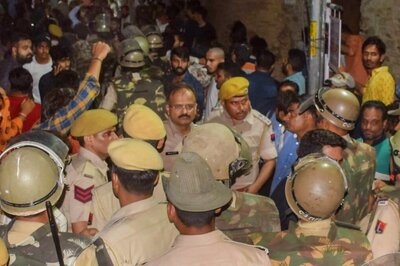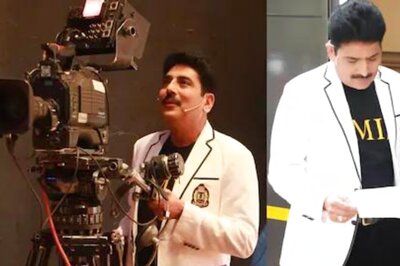
views
New Delhi: After Delhi Police held a few press conferences following the Batla House encounter, it was instructed by the home ministry not to brief the media further on the progress of probe, says Karnal Singh, who spearheaded the investigation into the 2008 Delhi serial blasts that took place less than a week ago. Singh recounts this and many other information about the encounter on September 19, 2008 in Delhi’s Jamia Nagar, in which two Indian Mujahideen (IM) terrorists were killed in his book “Batla House: An Encounter That Shook the Nation”. Encounter specialist and Inspector Mohan Chand Sharma, who led the police action to Batla House area, was also killed during the operation.
The author weaves together inputs by the Intelligence Bureau (IB), multiple strands of events in various Indian cities, and the labyrinth of information by local intelligence and informers, to create a minute-by-minute account of the chain of events leading up to the encounter. After the police briefed the media a couple of times, Singh, who was joint commissioner of police in the Special Cell that time, received a call from the police commissioner conveying that the home ministry did not want them to indulge in any more media briefings about the progress of the investigation.
“Some sections in the political circle were upset about details tumbling out against terrorists belonging to the minority community. I argued in vain that terrorism did not have any religion and as police officers, it is our duty to follow leads and apprehend terrorists, irrespective of their faith,” the IPS officer writes in the book. He says he knew that the “repercussion of leaving a void for the media in such a critical case would be dangerous, as it could be filled with half-baked information, or even worse, false and concocted” news.
“This surely was a recipe for information disaster. Only time would tell the impact this would have on holding up information with the media,” he says. According to him, the media was demanding information, but there were strict orders not to divulge investigation leads with them. “So, there was chaos. I can say for sure that the Delhi Police was losing its battle of perception.” The Batla House encounter, he says, became a historic event in the fight against terrorism.
“It caused a critical blow to IM, as it neutralised its key members and broke the backbone of its network in India. We lost one of the most intelligent and brave officers, whose findings led us to the core IM members,” Singh writes in the book, brought out by Rupa Publications. The case also stirred a political storm, instigated a witch-hunt against Special Cell officers, divided public opinion and became a raging controversial topic in the media that continues till date, he adds.
After the encounter, pressure was mounting on the government from all fronts. A few days ago, there were serial blasts in Delhi. The government was being accused of going soft on terror, he says. “The Opposition was advocating stringent action against the terrorists and supporting the police force working in counterterrorism. The government decided to take stock of the evidences available with the Delhi Police Special Cell.” Singh then received a call from the then LG of Delhi, Tejendra Khanna, and said that Kapil Sibal, who was a Union minister, wanted to discuss the issues related to the encounter. Khanna advised Singh to “come prepared”.
Sibal asked me to explain the various issues that were raised in several quarters including the media and Singh responded to every issue and shared all the information that was available with the police. It was more than an hour-long discussion and questioning and at the end, “Sibal admitted that he was convinced of the genuineness of the encounter and of the accused being involved in terrorist activities,” says Singh, adding he agreed to convey the same to the then Prime Minister Manmohan Singh.
“He took my number and true to his words, he rang me in the evening to confirm that he had conveyed what he found during discussions to the PM,” the police officer recounts.
Disclaimer: This post has been auto-published from an agency feed without any modifications to the text and has not been reviewed by an editor



















Comments
0 comment